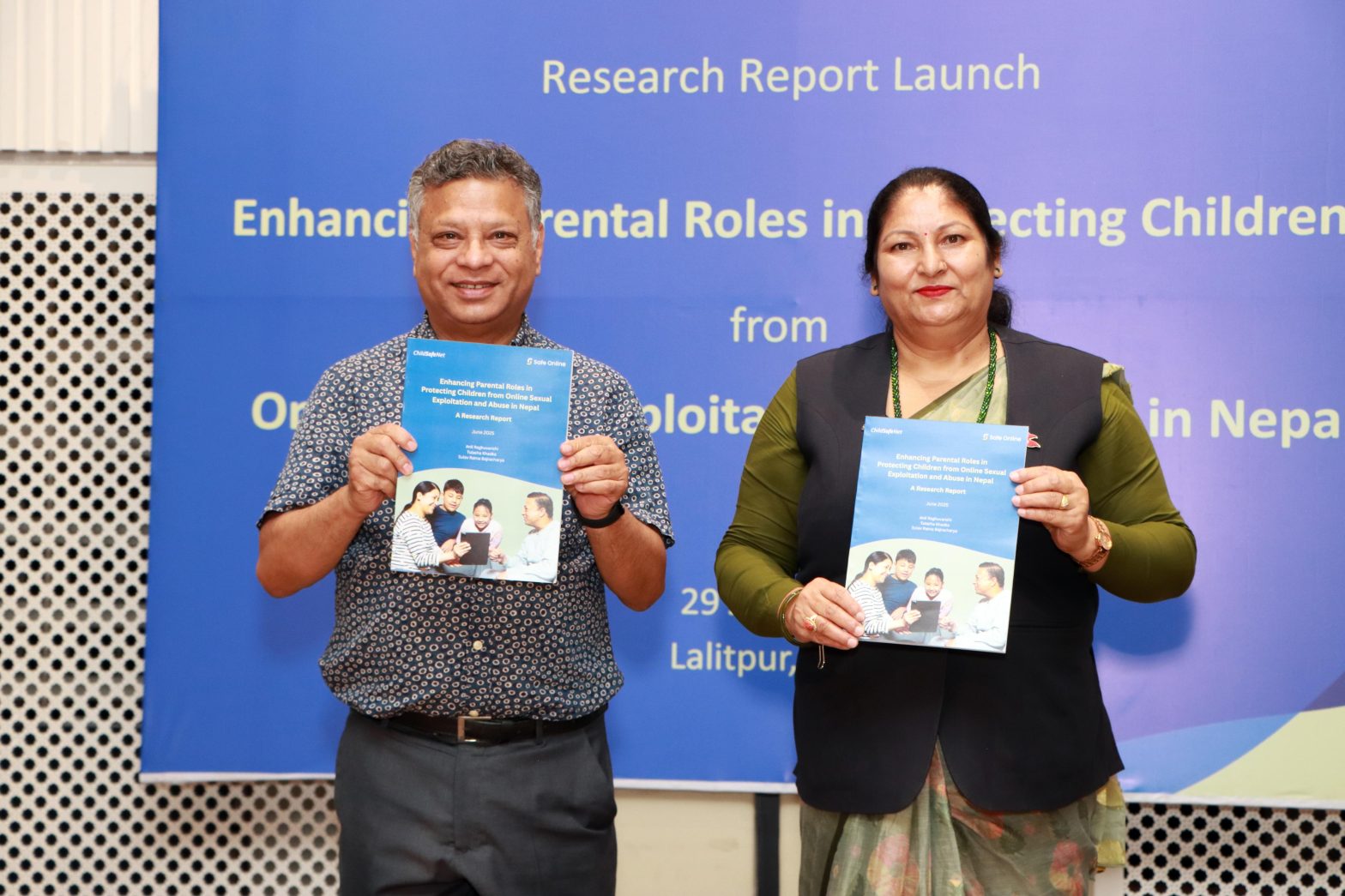Lalitpur: A new study has revealed that 85 percent of Nepali parents have never discussed online sexual exploitation and abuse with their children, raising concerns about the level of awareness and preparedness among families in protecting children in the digital space.
The research, conducted by ChildSafeNet, was formally launched at an event in Lalitpur. Titled “Enhancing the Role of Parents in Protecting Children from Online Sexual Exploitation and Abuse in Nepal,” the study was unveiled jointly by Indra Devi Dhakal, Member-Secretary of the National Child Rights Council, and Anil Raghuvanshi, Founder and Chairperson of ChildSafeNet.
Speaking at the event, Dhakal emphasized the growing risks children face due to increased online access and rapid technological development, stressing the crucial role of parents in ensuring children’s safety. She commended ChildSafeNet’s leadership in addressing such a sensitive and pressing issue.
The study was carried out in Kathmandu and Lalitpur districts using a mixed-methods approach, including a survey of 900 parents of children aged 6 to 17, focus group discussions, and in-depth interviews with parents, children, experts, and stakeholders. The research was supported by the Safe Online Fund and the Tech Coalition.
Lead researcher and primary author Anil Raghuvanshi said the study examined parents’ understanding, attitudes, and behaviors in keeping their children safe from online sexual exploitation and abuse (CSEA). It also captured the experiences of single parents, caregivers of children with disabilities, and others in vulnerable situations.
“While many parents expressed concern about online risks, they also reported lacking the knowledge, information, and support needed to protect their children effectively,” Raghuvanshi said.
Tulsa Khadka, co-author of the report, highlighted that even though many children do not own mobile devices, they frequently use the internet through family members’ phones. “Forty-five percent of children use their own devices, while 34 percent have their own social media accounts. Around 29 percent use family members’ accounts, with most accessing their mother’s account,” she said.
The study found that most parents were unaware of their children’s online activities, leaving them vulnerable to adult content, online grooming, and other risks. Additionally, many parents had limited understanding of issues such as online grooming, child sexual abuse, and exposure to explicit content.
Sulav Ratna Bajracharya, another co-author, noted that 85 percent of parents had never spoken to their children about CSEA. Reasons included discomfort, lack of information, and the belief that such discussions were not age-appropriate. The research also shed light on discrimination faced by queer children, including hatred and abuse from within their own families.
The study also included parental suggestions for digital safety education and technical solutions. Seventy-three percent of parents had never used any parental control tools, while 70 percent said they preferred in-person awareness sessions led by cyber safety experts. Additionally, 31 percent favored tools such as videos, apps, online courses, websites, and printed materials like brochures and booklets.
At the launch event, parenting educator Disu Bhandari Manandhar and pediatric surgeon Dr. Nrupesh Rajbhandari engaged in a fireside chat to discuss how parents can play a more active and informed role in protecting children from online sexual harm.
